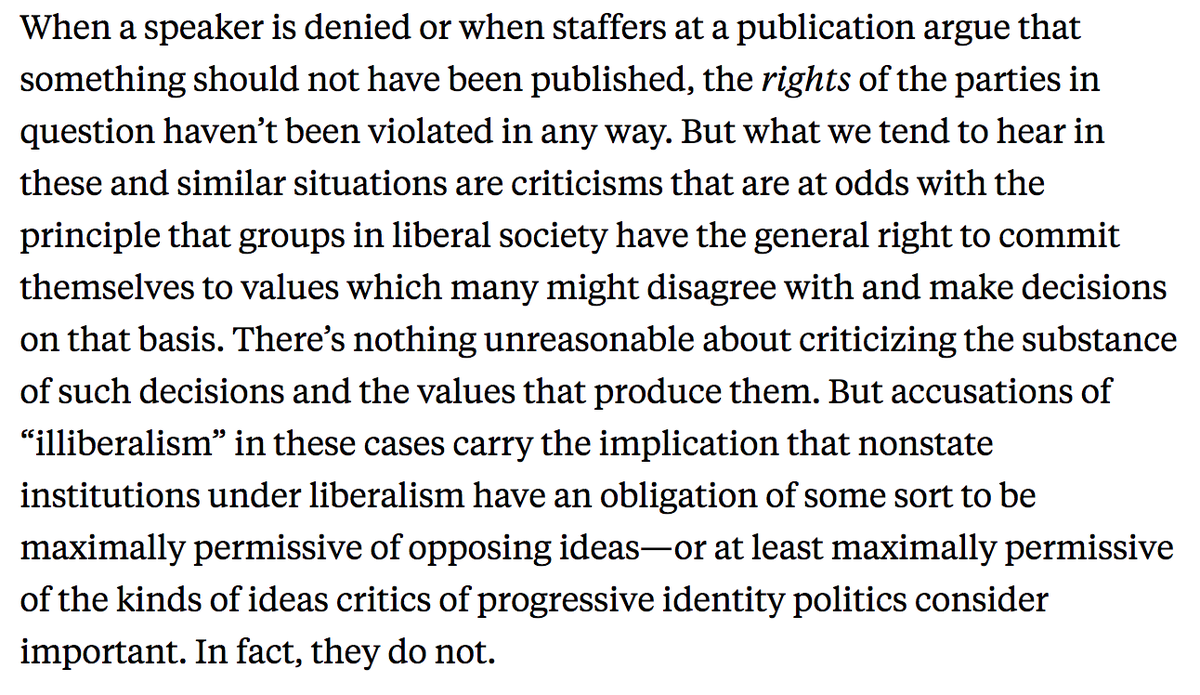
Let's do a thread on my Sunday column, which provoked some understandably strong reactions:
nytimes.com/2020/09/05/opi…
nytimes.com/2020/09/05/opi…
Some of those reactions were misreadings, so it's worth emphasizing:
I think Trump's handling of Covid has been bad.
I think it has undoubtedly cost some number of American lives.
I think it's possible that it will look worse in hindsight than it does in a snapshot right now.
I think Trump's handling of Covid has been bad.
I think it has undoubtedly cost some number of American lives.
I think it's possible that it will look worse in hindsight than it does in a snapshot right now.
On our podcast recently I debated @herandrews and @ToryAnarchist, who both leaned toward an act-of-God reading of the pandemic in which Trump's actions are essentially marginal to the result. That's not my view.
nytimes.com/2020/08/06/opi…
nytimes.com/2020/08/06/opi…
Indeed, I think that especially given Trump's own professed nationalist/China hawk worldview, and his 2016 sales pitch, his failure to take the virus seriously when it counted is a good reason for a swing voter to swing against him.
nytimes.com/2020/03/07/opi…
nytimes.com/2020/03/07/opi…
What I'm questioning is whether we have evidence that Trump's response has led to a unique catastrophe as opposed to a more ordinary failure, of the kind unfortunately common in our peer countries.
I think the unique-catastrophe case has, so far, relied on snapshots in time -- taking European versus American case rates circa July 15 as a final judgment, for instance -- that don't necessarily tell us how things will actually end up.
On the late spring, as we came out of lockdown, the US was doing better than Western Europe. By mid-summer we were doing worse. But now, well ...
https://twitter.com/MacaesBruno/status/1303526121804312576
Likewise, once you step back from deaths and case rates to other measurements of response capacity, the US looks anywhere from slightly-below to slight-above average, rather than catastrophic, compared to W. Europe and the Americas.
I mentioned mask usage in the column as one example:
bloomberg.com/graphics/2020-…
bloomberg.com/graphics/2020-…
Our testing rate is one of the highest in the world:
coronavirus.jhu.edu/testing/intern…
coronavirus.jhu.edu/testing/intern…
Now you can come up with structural reasons why we should be way, way better than average. But there are also structural factors that point the other way.
https://twitter.com/mattyglesias/status/1303676020994854914
And American goverment under non-Trump presidents has not been distinguished by old-fashioned exceptionalist Manhattan Project-style can-do for some time.
Again, I believe we could have been exceptional, and failed the test. And while there's plenty of blame to go around, Trump is the president, his bumbling has been flagrant, so a substantial responsibility for that failure belongs to him.
But the case that his failures have made our situation vastly worse than peer countries governed by non-populists is not something that current data proves.
We'll know more by December, and at the end of 2021, and I promise to revisit then.
Coda, in response to @davidfrum and others: Yes, I should have included a mention of Canada's success, which was in a first draft and I wrongly cut for space.
I don't think Canada alone is a great comp for the US, and averaging the bigs of Western Europe and the bigs of Latin American gets closer to Who We Are (for better or worse). But Canada belongs in a peer-country average and including it makes our response look somewhat worse.
• • •
Missing some Tweet in this thread? You can try to
force a refresh






